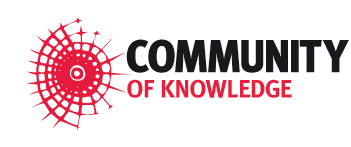Beiträge
Themengruppen
Recherche
Service
- Was ist Wissensmangement?
- Open Journal of Knowledge Management
- Artikel-Guidelines
- Newsletter
- Kalender
- Wissensmanagement-Anbieter
- Partner
- Mediadaten
Community
Sponsoren


Leveraging Boundary-spanning Knowledge Community Building
20. November 2005 von Dr. Ina Kohl, Dr. phil. Tobias Müller-Prothmann, Andrea SiegbergKnowledge exchange across organizational boundaries is of primary relevance for the success or failure of organizations, especially in R&D environments. Using methods of social network analysis, the argument presented here is explored through an empirical case study on inter-organizational knowledge community building between different research institutes of the Fraunhofer-Gesellschaft, a large German organization for contract research in all fields of the applied engineering sciences. Expert knowledge communication and networking processes are evaluated by a multi-level approach. Institutionalization of knowledge transfer is studied with regard to the development of the informal contacts between the community members and the inter-organizational linkages on an aggregated level. The main focus is put on the relationships of knowledge exchange between the formal organizational boundaries and the informal inter-organizational network structures. The paper aims at exploring possibilities for interventions to facilitate and strengthen community building processes based on the results of the social network analysis.
Quellenangabe
Müller-Prothmann, Tobias, Andrea Siegberg, Ina Finke (2005): Leveraging Boundary-spanning Knowledge Community Building. Interventions from a Social Network Analysis in Inter-organizational R&D Environments,
in: Norbert Gronau, Peter Pawlowsky, Thomas Schildhauer, Peter Schütt (eds.): Wissensmanagement. Motivation, Organisation, Integration, Konferenzband zur KnowTech 2005, 7. Konferenz zum Einsatz von Knowledge Management in Wirtschaft und Verwaltung, October 24-25, 2005, München, pp. 247-254.
Anhang:
Kommentare
Das Kommentarsystem ist zurzeit deaktiviert.
Themengruppen
Dieser Beitrag ist den folgenden Themengruppen zugeordnet
Schlagworte
Dieser Beitrag ist den folgenden Schlagworten zugeordnet

